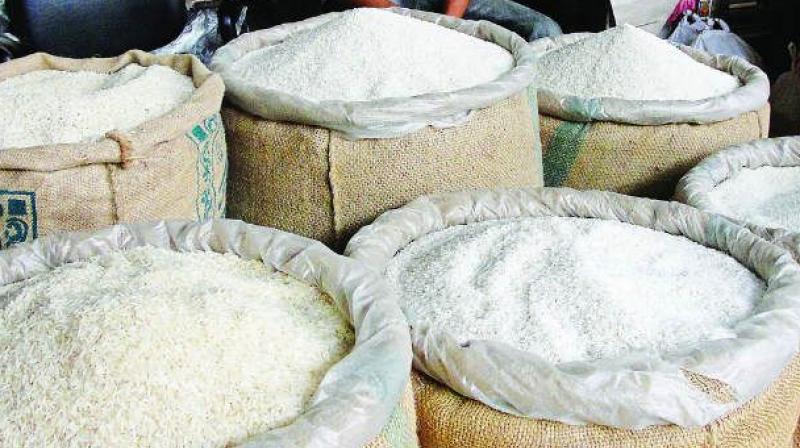Telangana: Shortage makes fine rice prices shoot up

Hyderabad: Fine rice varieties (sanna biyyam) from Telangana state are making their way into Andhra Pradesh, Maharashtra, Karnataka and Gujarat, leading to severe shortage of stocks and steep escalation of prices in the state.
One reason for this is that the state government does not pay the minimum support price (MSP) to procure fine rice varieties that were sown in the kharif season. It procured only thick rice varieties at MSP from farmers for the public distribution system. The production of fine rice varieties fell sharply throughout the country last year due to an attack of brown plant hopper. There were several instances of farmers setting their pest-infected crops on fire in November last in TS to prevent the pest from spreading to the next season’s crop.
Traders from other states vied to purchase the limited stocks of fine rice available only in Telangana state by offering higher prices to farmers, resulting in a huge demand-supply gap and leading to escalation of prices.
The price of top fine rice brands increased by upto Rs 1,600 per quintal over the past year, taking it beyond the reach of many families.
The undivided Karimnagar and Nizamabad districts are famous for producing fine rice varieties.
In Karimnagar, these rice varieties were sown on nearly one lakh acres. Normally, each acre produces 25 quintals of paddy, which fell to 15 quintals due to the pest attack. While 2.5 lakh quintals was expected to be harvested, only 1.5 lakh quintals was realised.
Traders from other states offered up to '2,200 per quintal, which is the highest in recent times. Traders get up to 70 kg of rice per quintal after milling.
There is yet another problem: traders are not passing on the GST benefit to consumers. There used to be a five per cent VAT on rice. The GST placed rice in the zero tax category, but traders continue to collect the old tax.
The price of rice should come down by '400 to '500 per quintal under GST, but has increased.
Civil supplies commissioner C.V. Anand said special teams have been formed to raid rice millers and traders, and to check GST violations and price rise.
“Rice millers and traders have to pass on zero tax benefit to consumers but we have received complaints that they continue to levy 5 per cent tax that prevailed in VAT due to which consumers are ending up paying a higher price. Hoarding of stocks by millers and traders to create artificial storage is also leading to price rise,” Mr Anand said.
Special teams have been formed to conduct raids on millers and traders to check these irregularities.” Mr Anand said.
He added that if GST benefit is passed on to consumers, and hoarding is checked, the price of rice will come down to some extent.

